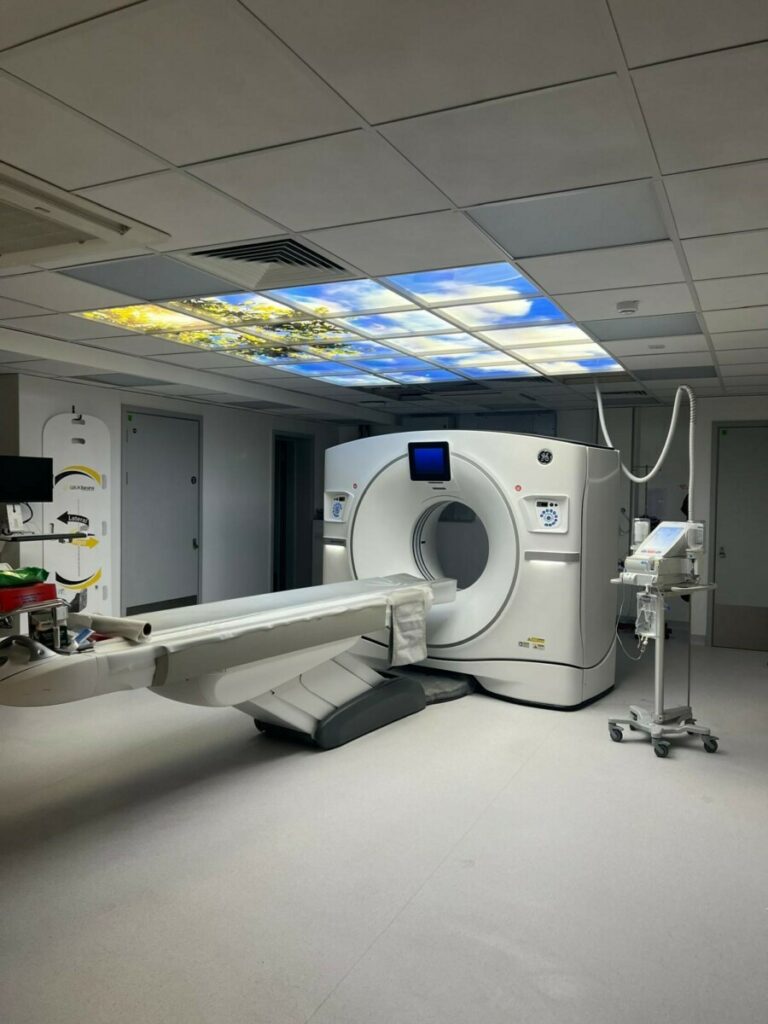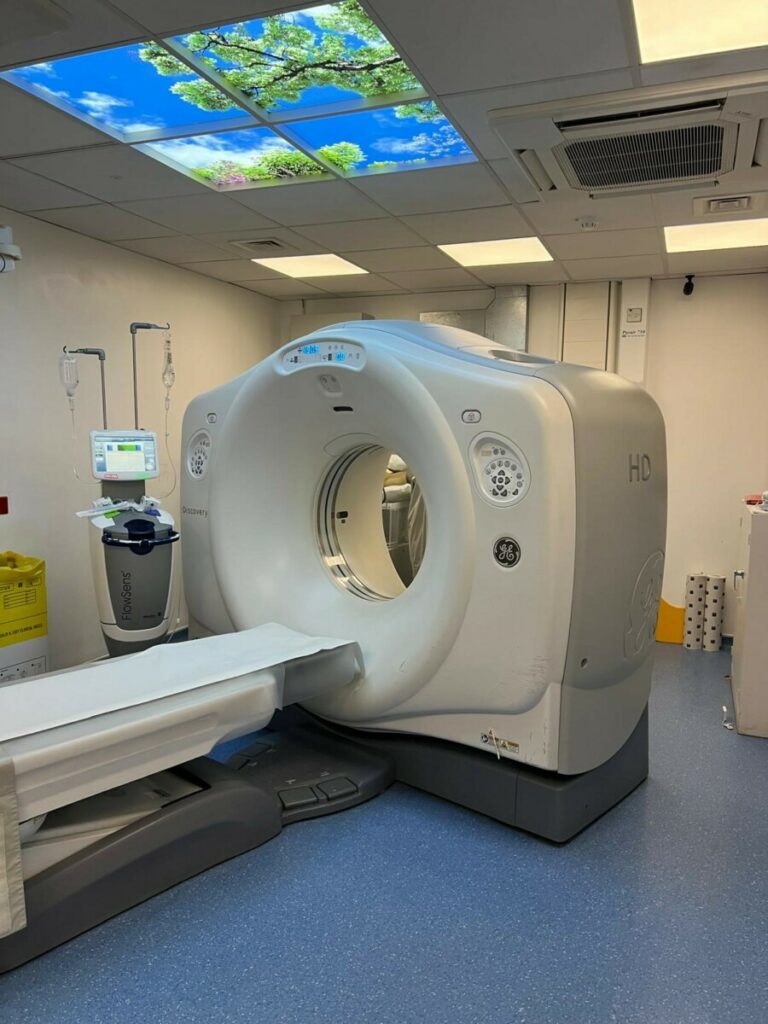Please feel free to ask the radiographer any questions before your scan.
You will be asked to lie down on the scanner table, it is important to keep still during your scan, it will normally last, five to ten minutes depending on the particular CT examination. The first scan we take gives us an overview of your body, from this we plan the ‘main scans’ . If you are having the contrast injection then you will have this during the main scan. The radiographer will leave the room whilst the scan is taking place. They can still see you on a monitor. The scanner has a microphone built into it, so you can communicate with staff and the radiographer can communicate with you.
If you are anxious about going into the CT scanner, it is important to remember that the CT scanner is wider than an MRI scanner, is NOT a tunnel and acquiring the scans takes less time. Please see the photos provided of the CT scanners at the hospital.
Please be aware the department is not able to give any medication to help reduce anxiety. This will need to be prescribed in advance by your doctor.
Should you have any doubt about your examination please contact the CT department.


